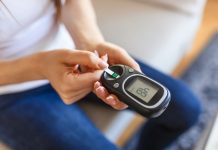
In a significant discovery, researchers from the Karolinska Institutet have found that a commonly used diabetes medication could notably improve recovery after a stroke in mice with obesity and type 2 diabetes.
Published in Cardiovascular Diabetology, this study shines a light on the potential for these findings to influence stroke rehabilitation for people with type 2 diabetes.
With diabetes rates soaring worldwide—expected to reach 700 million by 2045—stroke emerges as a major concern for those living with the condition.
Not only are people with diabetes at a higher risk of experiencing a stroke, but their journey to recovery is often more challenging compared to those without diabetes.
Enter SGLT-2 inhibitors, a group of drugs designed to lower blood sugar levels in adults with type 2 diabetes by preventing glucose reabsorption in the kidneys.
Beyond their primary use, these medications have been recognized for their cardiovascular benefits. However, their impact on stroke recovery remained unclear until now.
The research team at Karolinska Institutet embarked on a study to explore the effects of SGLT-2 inhibitors on stroke recovery in diabetic mice.
The results were promising, showing a significant improvement in functional recovery when these inhibitors were administered after a stroke.
Ellen Vercalsteren the study’s first author, highlighted the implications of these findings.
“This suggests that diabetic people suffering from stroke could improve their negative prognosis if treated with SGLT-2 inhibitors,” she said.
The team is now set to further investigate the relationship between diabetic treatments and stroke outcomes through clinical registry studies.
This research could pave the way for new approaches in stroke rehabilitation, offering hope to millions of people with type 2 diabetes facing the dual challenge of managing their diabetes and recovering from a stroke.
If you care about stroke, please read studies about how to eat to prevent stroke, and diets high in flavonoids could help reduce stroke risk.
For more information about health, please see recent studies about how Mediterranean diet could protect your brain health, and wild blueberries can benefit your heart and brain.
The research findings can be found in Cardiovascular Diabetology.
Copyright © 2024 Knowridge Science Report. All rights reserved.



